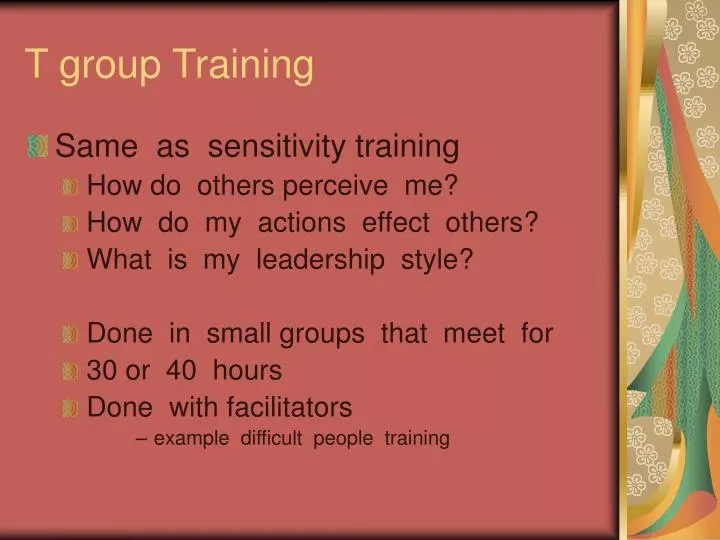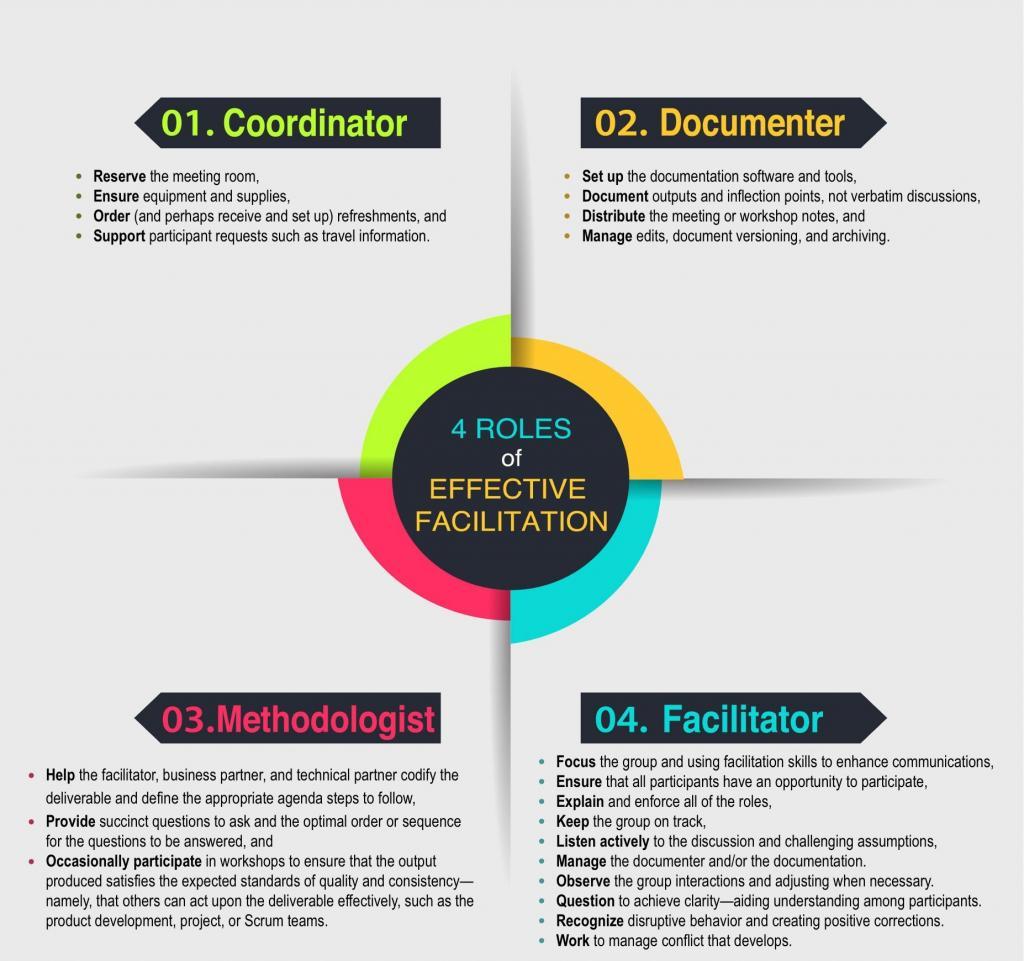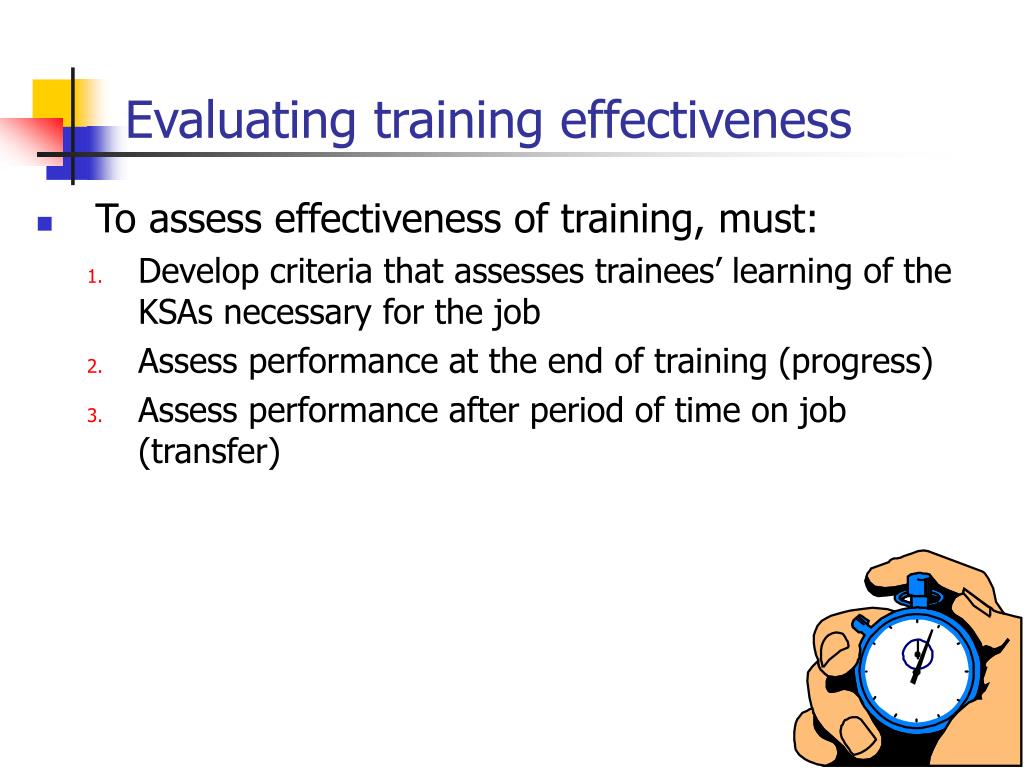T - Group Training Presentation
| Introduction to T-Group Training | ||
|---|---|---|
| T-Group training, also known as sensitivity training, is a form of group therapy aimed at enhancing self-awareness and interpersonal skills. Participants engage in experiential learning, focusing on group dynamics and personal growth. T-Group training is widely used in corporate settings, educational institutions, and therapeutic environments. | ||
| 1 | ||
| Benefits of T-Group Training | ||
|---|---|---|
| Improved self-awareness: T-Group training allows individuals to gain insights into their emotions, behaviors, and beliefs. Enhanced communication skills: Participants learn active listening, assertiveness, and conflict resolution techniques. Increased empathy and understanding: T-Group training fosters empathy and understanding towards others, leading to better relationships. | ||
| 2 | ||
| Key Components of T-Group Training | ||
|---|---|---|
| Open and safe environment: T-Group training creates a safe space where participants can express themselves without judgment. Experiential exercises: Participants engage in various group activities and simulations to explore their own and others' behaviors. Feedback and reflection: Group members provide constructive feedback to each other, facilitating personal growth and learning. | ||
| 3 | ||
| Facilitator's Role in T-Group Training | ||
|---|---|---|
| Creating a supportive atmosphere: Facilitators establish trust and psychological safety within the group. Guiding group processes: Facilitators manage group dynamics, ensuring equal participation and constructive communication. Providing feedback and insights: Facilitators offer observations and reflections to help participants gain new perspectives. | ||
| 4 | ||
| Challenges in T-Group Training | ||
|---|---|---|
| Emotional intensity: T-Group training can evoke strong emotions, requiring participants to be emotionally resilient. Resistance and defensiveness: Some individuals may initially resist the process or become defensive when receiving feedback. Confidentiality concerns: Maintaining confidentiality within the group is crucial to ensure trust and openness. | ||
| 5 | ||
| Evaluating the Effectiveness of T-Group Training | ||
|---|---|---|
| Self-assessment: Participants can evaluate their personal growth and development throughout the training. Feedback from participants: Obtaining feedback from participants about their experience and perceived benefits. Observations and qualitative data: Assessing changes in group dynamics, communication patterns, and interpersonal relationships. | ||
| 6 | ||
| Applications of T-Group Training | ||
|---|---|---|
| Leadership development: T-Group training enhances leadership skills, emotional intelligence, and self-awareness among leaders. Team building: T-Group training improves collaboration, communication, and trust within teams. Personal development: Individuals seeking personal growth and self-improvement can benefit from T-Group training. | ||
| 7 | ||
| T-Group Training vs. Other Group Interventions | ||
|---|---|---|
| T-Group vs. Team Building: T-Group training focuses on personal growth and self-awareness, while team building emphasizes collaboration and goal achievement. T-Group vs. Group Therapy: T-Group training is more focused on interpersonal dynamics and skill development, whereas group therapy addresses psychological issues and healing. T-Group vs. Workshop: T-Group training is experiential and emphasizes learning through group interactions, while workshops are often more didactic and information-based. |  | |
| 8 | ||
| Tips for a Successful T-Group Training Experience | ||
|---|---|---|
| Embrace vulnerability: Be open to sharing personal experiences and emotions within the group. Active participation: Engage fully in group activities, discussions, and feedback sessions. Respect and empathy: Show respect and empathy towards others' experiences, perspectives, and feelings. | ||
| 9 | ||
| Conclusion | ||
|---|---|---|
| T-Group training is a powerful tool for personal and professional development. It fosters self-awareness, communication skills, and empathy. By participating in T-Group training, individuals can enhance their relationships, leadership abilities, and overall well-being. | ||
| 10 | ||




